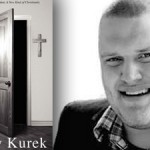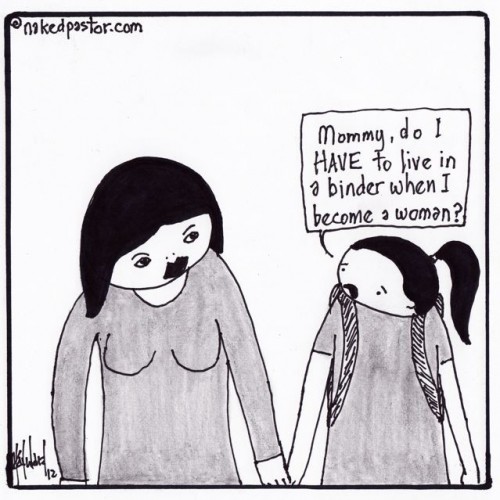Noticing that I might be going through a hard time, some people have emailed me expressing their concern. Lovely. Thanks. Included in some of the concern is the assumption that because I am a pastor I am very isolated and lonely, which makes my struggle even more difficult. I want people to know: I am not lonely.
It is true that most clergy I know of and read about are lonely. I was explicitly instructed in seminary to not befriend people in my congregation, and that the pastor is to maintain a level of separation from his or her people… for many reasons (to avoid enmeshment, to prevent favoritism, to maintain objectivity, etc.). I grew up in that school and saw that school of thought modeled. Even with the last church I planted in 2002 I was instructed by my boss that I was not to let my people see my weaknesses, that they needed a strong and together leader to inspire them to their own strength. I understand that sentiment but completely disagree with it. So years ago I decided to break that model. I desired to be authentic for myself and to be authentic for whomever I pastored. It was a very difficult but very rewarding transition. Now I wouldn’t have it any other way. I am surrounded by my community. They are my friends. I can be honest and authentic with them. They know and share my troubles as I do theirs. I am not alone. Of course, at the core of every person is a place that not even we ourselves understand, so there remains that natural existential alienation that we all occasionally sense. But I am not afflicted with the chronic loneliness that so many pastors experience. I am loved by many.
So pastors and parishioners, here’s some suggestions on how to get there if you aren’t already:
- Be patient as you make the transition. It took me years for people to get used to the idea as well as me getting used to the experience of being authentic, honest and known within a faith community.
- Expect opposition. Some people don’t want to know that their pastor has weaknesses. They want their pastor to be firmly on a pedestal and to never come down. I have lost friends because they are offended that their pastor has unpleasant shortcomings. I have been betrayed by people who decided, because of who I was, that I wasn’t worthy of leadership. Some prefer a strong and charismatic leader who has it together. Which is fine. There are plenty of them out there.
- Experiment with being honest, open and vulnerable with one or two people within your community that you think could be trustworthy friends. Hopefully they will be a part of your leadership team or elders. As you feel more comfortable and confident, expand the circle of friendship and authenticity.
- Some of my best friends are women. Generally speaking and in my experience, women are more open to and understanding of weakness than men are. Half of our leadership team is female. But men: this means learning and keeping appropriate boundaries with your women friends. Goes without saying.
- Enjoy male companionship. I have found that while women generally will get together to talk and do something else on the side, men generally want to do something and maybe talk on the side. So go work-out at the gym together. Go fishing. Play hockey. Watch a game. Shoot deer. Eventually times will come when you can talk about personal issues together. Take advantage of those opportunities.
- If you want your own authenticity accepted, this necessarily means that you must embrace the authenticity of others. It is mutual and two-sided. As trust builds in your relationships, vulnerability, authenticity and genuine love can result, leading to deeper and more significant friendships. But be warned: deep connection leads to deeper pain as you really do share the burdens of others. But it also can lead to greater rewards as you discover that you can travel greater distances when someone helps you bear your burdens.
- In my opinion, this pretty much limits the size of your community. Some studies show that once a community goes over 100 in number, the interpersonal dimension becomes thin and therefore more difficult. I don’t mind being part of a smaller community. I would prefer to start another one than to grow much larger in order to preserve the friendship factor.
- Expect to be humbled. There will be times when your weaknesses are serious. If your marriage is struggling and you’re the problem, or you struggle with pornography, or you are drinking too much, or you hate your job as a pastor, or you feel like you are losing your faith, or you’ve been stupid with your finances… these kinds of things are difficult to admit even to ourselves never mind others. You might not share this with the whole community but with the leadership team so that they can walk through it with you. Authentic love in community is often messy, chaotic and raw, but it is real. You can actually witness and experience healing. This is where you may find that friendship is tried, tested and true.
- Your community, if it has been based on the hierarchical model for instance, will experience a dramatic paradigm shift over time. Thankfully, we went through a horrendous split years ago that sped up the process. We were all hurting and we all knew it. There was no point in trying to hide it. We are still on our journey towards, as Henri Nouwen would have called it, a “wounded healer” type of community. It becomes more rich and beautiful (or more offensive depending on your perspective) over time.
- Prepare yourself for transformative change. When you start loving across instead of down, it will challenge the way you see, treat and accept people into your life. It will change the way you do community, the way it is run, maintained and managed. It will redefine what success looks like to you. You will have to discard much of what you’ve been taught and assumed. But it is worth it. Your community will become what it is intended to be: a functional family of friends.
No, I’m not lonely. I have many friends. I am loved. In fact, it is because of the safety of this love that I feel liberated enough to express myself more openly to you, dear reader. Imagine if I, a pastor, didn’t have a supportive and loving community: I would pretty much have to remain anonymous for some of what I write, wouldn’t I? So, what other suggestions or advice or dangers might be noted in regards to this? Feel free to comment.











